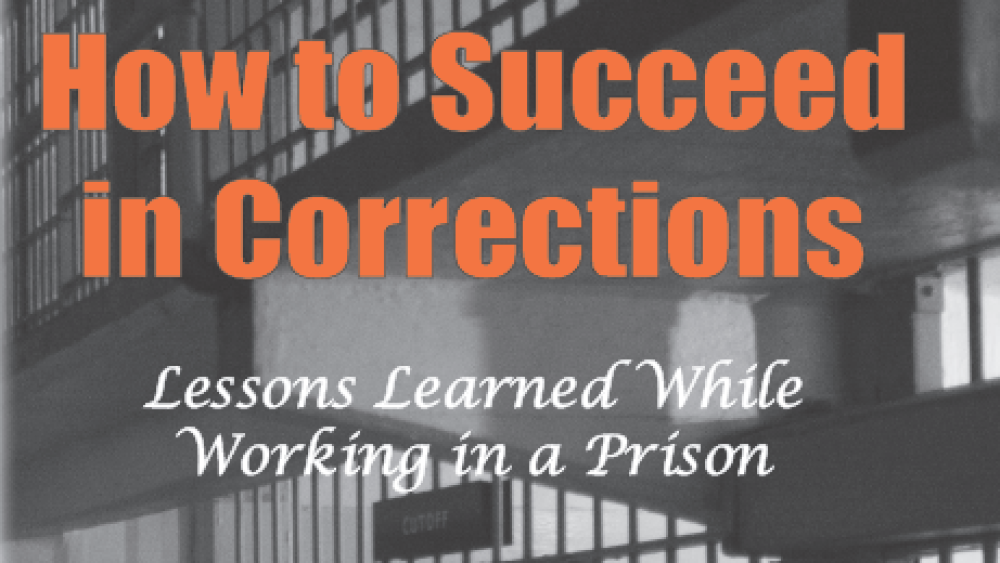The following is excerpted from “How to Succeed in Corrections: Lessons Learned While Working in a Prison” by Anthony Gangi. The book covers the many lessons the author learned on his journey from officer to administrator. Each short chapter contains a summary of an important lesson learned, followed by two lined pages for the reader to add his or her own experiences. Click here to order.
Chapter 17: Max or Min?
“New officers working maximum security or administrative segregation learn valuable offender management skills and gain experience such as learning to recognize and handle offender aggression and manipulation attempts. Working in these areas will also help to teach the new officer when to write a report and when informal resolution is more appropriate. Writing a ton of reports on an offender with nothing to lose is ineffective. This will teach the new officer to choose his battles wisely while building his respect and stripes.” —SGT R. Galvan TDCJ (Retired)
I was asked a while back if I believed rookie officers should best begin their career in a minimum unit where they can be introduced to the profession at a less restrictive pace, or should they begin their career at the highest and most restrictive level of security (maximum) where there is little room for error.
For me, the answer is simple. A recruit can best be cultivated at the highest level of practice (maximum) that offers a quick and immediate reminder (mentor/field training officer) of the potential consequences of their actions. Some may compare this to throwing someone who can’t swim into the ocean and wishing for the best. I would, of course, disagree.
For me, sure it may look and feel on the surface they are being thrown into the ocean (maximum) in total disregard, but they are not being thrown in without a lifebuoy (team support, field training officer) nearby. In essence, new staff are being empowered and supported at the same time. The choice for me to begin a new officer or staff member at the highest level of restriction or status (maximum) is centered around the mindset of the inmates that will be in their charge.
Be mindful, that nothing will ever be one hundred percent. However, for the sake of this discussion, let’s lean towards where the majority would be. The inmates housed in the most restrictive of environments, the highest level of custody, may lean towards the mindset of being comfortable while spending their time behind the wall. Again, these are inmates who may have a longer sentence to complete or may be seen as more problematic. Either way, these inmates are usually the ones who are constantly searching for comforts to alleviate their higher level of restrictions.
For correctional staff, this type of environment and these types of inmates present a great way to set the tone for the universal precaution needed not just to survive every interaction with the inmate population, but to succeed in the corrections profession. To be honest, it’s a great template for staff because it’s centered on the highest level of correctional practices that provide the best foundation for any correctional environment they may be assigned. There is no room for complacency at this level of the game and the standards required to meet the needs of the higher restrictive units are set at the highest level of safety and security. Again, with that said, learning at this level is a great way to begin one’s career and set that foot forward in the best direction imaginable.
For those who believe it’s best to start a correctional staff member at the lowest of levels (minimum), in which the environment is the least restrictive and the inmates are more focused on transitioning out as opposed to remaining comfortable within, they may find themselves to be in fear of a mistake made at the highest level of restriction by the new staff member. These mistakes are such that they can threaten the safety and security of the prison. With that said, mistakes are going to happen. Trust and believe me, it is through mistakes and failures that we tend to grow the most.
Instead of being fearful about new staff making a mistake and thus believing they must be introduced to this profession in a slow and controlled manner, trainers and supervisors need to be mindful that they will be alongside the new staff member. They will be investing time with this individual as they cultivate and mentor their growth in unity from those mistakes. With that type of support in place and the efforts being made to cultivate the fresh staff member, they can begin with the highest level of practice first. This creates a strong foundation that will truly balance this officer throughout their whole career in corrections.
I believe that the best foundation starts at the highest level of restriction. It gives staff great tools to lean on as a default. These tools could guide them in less restrictive areas when the environment tends to be laxer due to the lesser number of restrictions. And for those that disagree, maybe we can agree on this: working at the highest level of restrictions does teach the new staff how to say “NO” and mean it.
















